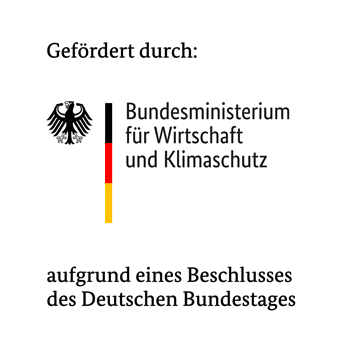Due to the 2021 tightened GHG reduction targets, the space heating market is facing a challenge. Since oil heating systems are not always replaceable by other technologies, sector coupling with GHG-reduced fuels such as kerosenes is necessary. Fueling with kerosenes results in mixing with residual petroleum-based and biogenic fuels in the tank. However, the interactions of the fuels and resulting oil-heating disturbances are not sufficiently researched.
Project start: Interactions of paraffinic fuels with mineral oil residues in tanks

BMWK supports research into climate-friendly paraffinic fuels
To this end, the BMWK is funding a research project that will start on August 1, 2022. The research objective of this project is to investigate the interactions and identify unproblematic fuel mixtures and any additives required for the safe introduction of paraffinic fuels.
Research Centres
OWI - Science for Fuels gGmbH, Herzogenrath
Max Planck Institute for Coal Research, Mülheim an der Ruhr
The solution consists of interdisciplinary work. Mixtures of fresh kerosenes and residual amounts are produced. In order to be able to investigate not only the freshly mixed state but also the interactions during storage, they are aged using established (long-term storage) and newly developed methods (thermoreactor). The fuels will be studied by bulk chemical-physical analysis, detailed analysis and application analysis. The intended results include the identification of the aging products as well as other aging reactions and products of the blends, the determination of the interaction of the blends with common fuel oil burner components and the start-up behavior and emissions in the oil-fired boiler. From this, measures for a safe market introduction of paraffinic fuels will be derived.
Networked together
Project 857, which was initiated by the members of the DGMK Fuels Technical Committee, will run for 2.5 years and will be supported by a group of experts from various sectors. Representatives of the energy and additives industry, suppliers of heating systems, burners and components, tank manufacturers and experts from analytics and development services are involved.
Curious now? More exciting research projects are underway or in preparation.
The IGF project (22555 N) of the research association Deutsche Wissenschaftliche Gesellschaft für nachhaltige Energieträger, Mobilität und Kohlenstoffkreisläufe e.V., Große Elbstraße 131, 22767 Hamburg, Germany, is funded by the German Federal Ministry of Economics and Climate Protection through the German Federation of Industrial Research Associations (AiF) as part of the program for the promotion of joint industrial research (IGF) based on a resolution of the German Bundestag.